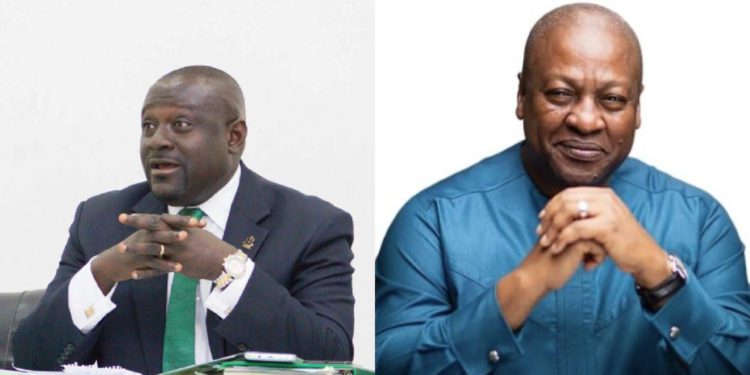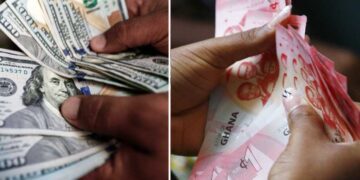Former Member of Parliament for New Juaben South, Mark Assibey-Yeboah, has explained that the successes chalked by the Akufo-Addo-led administration between 2017 and 2019 were as result of the Mahama administration seeking an International Monetary Fund, IMF, bailout in 2015.
According to him, the country’s economic indicators were positive when the country subscribed to the Fund’s programme.
In an interview with Accra-based Citi TV on July 5, the former Chairman of Parliament’s Finance Committee said should he be made finance minister, he will park the country’s economy at the IMF owing to the country’s good
track record when it is under the Fund.
“If I am Finance Minister, I will park the economy at the IMF. It brings discipline. From 2015-2019 we were under a Fund programme. All the successes the NPP chalked 2017-2019, they chalked those successes under a [Mahama] fund programme. That programme was supposed to end 2018 and the NPP extended it by one year,” he said
“I argue that when the IMF are in town, we get things done right. If you go back to the programme we had under Atta Mills 2009 – 2012….fantastic. the macro indices at the time, the best we have seen in a long time between 2009 and 2012. The moment the Fund left in 2012, everything went berserk. If I were Finance Minster I’ll park the economy at IMF,” Dr. Mark Assibey-Yeboah added.
President Akufo-Addo on July 1 ordered the Finance Minister, Ken Ofori-Atta to begin formal engagements with the Fund.
The move has since divided public opinion. While some welcomed the decision, others have criticized the government for not remaining committed to its decision not to return to the Fund earlier.
Meanwhile, an IMF team has arrived in the country to begin initial engagement processes. The team is led by Carlo Sdralevich, who is the mission chief for the country.
Mr Sdralevich in statement said: “The IMF stands ready to assist Ghana to restore macroeconomic stability, safeguard debt sustainability, and promote inclusive and sustainable growth, and address the impact of the war in Ukraine and the lingering pandemic.”



















